-
01
Find Legal Offices
If you are disturbed with legal affairs or you are trying to reach government offices like Courts, District Attorneys or local Bar Associations, you can find accurate and reliable information on ProbonoPedia. Moreover, you can search Attorney Generals, Departments of Justice and Victim Centers by state or by county.
-
02
Legal Know-How
No one ever plans on trouble but sometimes it does happen. You may encounter sorts of difficulties when finding or retaining a lawyer or an attorney, and sometimes you may get confused about all those procedures. Reading Pros Of Local Attorneys, Pro Bono Service and How To Find A Lawyer? may give you a hint.
YOU MAY FIND INFORMATION ON
-
Attorney Generals
The attorney general is the main legal advisor to the government. In jurisdictions, attorney generals have executive responsibility for law enforcement, prosecutions or even legal affairs generally. In practice, the attorney general provides legal advice to the government that varies between jurisdictions.
-
Bar Associations
A bar association, also called a legal association, is a group of lawyers that are not only dealing with issues affecting the legal profession but also dedicated to serving their own members. Members involved in bar associations are qualified as barristers or advocates. For practicing attorneys, membership in bar associations may be mandatory or optional.
-
Courts
Courts are the main means to resolve disputes in legal systems. As a government institution, courts have the authority to adjudicate legal disputes between parties and implement the administration of justice in all matters in conformity to the law. All people have the right to bring their claims to court.
-
Departments of Justice
The Department of Justice, also called the Justice Department, was established to enforce the law and administrate justice in the United States. Formed in 1870, the department is led by the United States Attorney General, ensuring public safety against foreign and domestic threats.
-
District Attorney Offices
District Attorney Offices are representing the United States federal government in United States courts of appeals and United States district courts. The offices are responsible for bringing criminal charges against someone in a particular area or state.
-
Victim Assistance Centers
Victim Assistance Centers are responsible for assisting and providing services via advocacy, education, and emotional support to all survivors of violence and crime in different areas. The mission of the organization is to bring hope and make changes for those people.
WHAT'S NEW AT PROBONOPEDIA
-

Family Attorneys
What Is A Family Attorney A Family Attorney is a lawyer who is an expert in family law. He/she can help you with divorcing, dissolving a civil union, or seeking benefits in a domestic partnership. What Does A Family Attorney Do? Family attorneys specialize in legal issues regarding family life and domestic relationships, including spousal relationships and parent-child relationships. 1. Marriage And Divorce Marriage and divorce come with a host of legal documents and procedures. To deal with the following issues, you need a family attorney’s help. Prenuptial Agreements: If you are rich or you are married to a rich person, a prenup agreement, which includes provisions for division of property and spousal support, can be beneficial someday. You can work out the framework of an agreement on your own, but a family attorney is usually essential to finalize a prenuptial agreement in court. Annulment: Under cases of misrepresentation, incest, bigamy, underage, or force, a couple can pursue an annulment to dissolve the marriage like it never existed. Divorce: There are two types of divorces: In a no-fault divorce which is allowed by all states, one spouse files for divorce by stating a general reason; In cases of fault divorces allowed by most states, one spouse faults the other for established reasons such as desertion, adultery, or cruelty. Alimony: Also known as spousal support, alimony is very common in divorces when one spouse earns a higher salary than the other. The wealthier spouse may need to provide payments, namely alimony, for the other after the divorce is finalized. 2. Child Support And Child Custody When spouses with children divorce, there will be legal issues about child custody and child support. Common family law issues include: Child Custody: Physical custody refers to a parent's right to have the child reside with him or her. One or both parents may be granted physical custody. Legal custody is a parent’s right to make major decisions about the children's health care, education, and religion. Child Support: By law, noncustodial parents must provide a monthly payment to support the children. The amount of the payment is determined by a family court. Paternity: A paternity test is used to identify a child’s father which is an influencing factor in child custody and child support cases. 3. Adoption There are many types of adoption, all of which may require extensive legal help. The following are the most common types of adoption: Agency Adoptions: Legal arrangements between the adoptive parents and a public or private agency are involved in these adoptions. Private Adoptions: The adoptive parents need to form straightforward arrangements with the birth mother. Identified Adoptions: These refer to adoptions in which the birth mother and the adoptive parents have already become acquainted independently, and they just need an adoption agency to finalize the process. International Adoptions: These include adoptions in which the parents adopt a child from another country. One important matter of the process is securing an immigrant visa. 4. Domestic Violence If you are abused during a marriage, a family law attorney can help you get full custody or file an order of protection to keep your family safe. How Can You Get The Most Out Of A Family Lawyer’s Help? Once you have chosen a family lawyer you trust, there are some tips for you to get the most of a lawyer’s help. Tell The Whole Story: There may be some embarrassing information in a family case, but hiding that from your lawyer is not a good idea. Your lawyer needs as much information as possible to mitigate or remediate the damage. Document Everything: To prove certain aspects of your case, a documented record of phone calls, text messages, e-mails, and any other conversations is extremely helpful. Take A Deep Breath: Try not to make rash or snap decisions in the middle of a case. How Are Family Law Attorneys Paid? To suit the financial budgets of clients, family law attorneys usually offer a number of payment arrangements to choose from. The common types are: An Hourly Rate: The payment is based on how many hours your lawyer has spent working on your case. This is the most common fee structure, but the cost can vary by practice area. A Flat Fee: The payment is fixed regardless of the lawyers’ working hours. This is usually only available if the case is very simple, like an uncontested divorce. There can be additional fees, too, including: Retainer Fees: If you want to secure a prestigious lawyer, you may need to pay an upfront fee. The cost of services can be deducted from the retainer. Consultation Fees: Many lawyers offer free consultation now, but some may still charge for the first meeting, whether you hire the lawyer or not. Contingency fees. Payable if you win the case. These are not very common in family law cases but you need to check this before choosing an attorney. All in all, a family law attorney is usually very expensive. If you have any trouble in paying the expenses, you can ask your spouse for help or get legal help for free by legal aids.
Read More > -
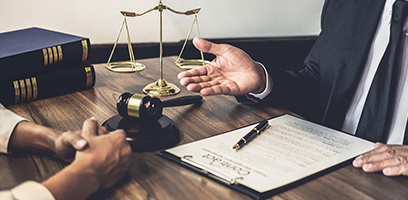
How To Find A Lawyer?
No one ever plans on legal trouble, but sometimes it does happen. If the legal trouble is complicated or involves lots of money, you might not know how to deal with it without a lawyer.However, finding a good lawyer who can help you handle your particular problem may not be easy. Don't expect to locate a good lawyer by solely reading an advertisement. There is not enough information in this source for you to make a wise judgment. So how to find a good lawyer? Here are five effective ways to help you find a lawyer, as well as what questions you should ask during your first meeting with him or her to select the best one for your case. How To Find A Lawyer: 1. Personal Referrals Talk to your friends, family members, colleagues, and other acquaintances to see if they know any lawyer they can recommend. 2. Lawyer Referrals You can also ask a lawyer you trust. Even if they are not familiar with the area of law in which you need legal help, they may be able to recommend someone who can deal with your case. 3. Make Full Use Of Online Services Many sites offer a way to connect with your local lawyers. You just need to do a simple online search, answer a few questions about your case, and leave your contact information, then the right type of lawyers will contact you directly. 4. Consult Lawyer Directory Check your state or local bar association's attorney directory, which provides a list of lawyers in your area. 5. Turn To A Law Librarian A law librarian may help you identify authors in your state who have written articles or books on a particular legal subject. Try any or some of the methods mentioned above, and you’re sure to get some attorney options. But meanwhile, you may feel confused as to who will be the best attorney for your case. You need to interview each of them personally. Below are some of the important questions to ask: What Questions To Ask Before Hiring A Lawyer Do you offer a free consultation? If not, how much does the initial meeting cost? How much experience do you have in cases similar to mine, and what were the outcomes of those cases? Are there any other ways like mediation or arbitration to solve my problem? Have you ever been disciplined for attorney misconduct? What services do you provide? What are your fees? How are the fees calculated (by the hour, half-hour or otherwise)? Are your fees negotiable? How do you expect to be paid? How much time can you spare to solve my case? How often can I hear from you? More Considerations When Hiring A Lawyer Aside from asking questions, there are also many other things to consider: When you go for your consultation, pay attention to details, including how professionally you are treated, if his or her personality is compatible with your own, and if you feel comfortable working with him or her. Reading what previous clients have said about the attorney can also help you make the right choice.
Read More > -
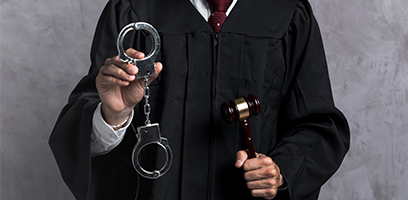
Criminal Defense Attorneys
If you are facing criminal charges, you may need to search for a criminal lawyer to defend your rights. Many legal issues are involved in a criminal case, and a professional attorney can make things a lot easier. What Happens In A Criminal Case? In a civil case, the lawsuit is usually brought by private citizens or businesses that demand to be financially reimbursed for some sort of damages. Whereas in criminal cases, the lawsuit is usually brought by the government. The government will likely impose punishments, such as jail time, fines, probation, etc. on the defendant. What Are The Types Of Criminal Cases? There are three main types of criminal cases: infractions, misdemeanors, and felonies. Infractions are the least serious type. It is for something like a traffic ticket or a fine. You can be spared if you pay for the ticket or fine. Misdemeanors are less serious than felonies but both may face punishments as harsh as jail time. Such punishments can haunt you for a lifetime, so you need to stay away from misdemeanors and felonies. But if you are charged with such criminals, don’t panic and ask a criminal defense lawyer to protect your rights. What A Criminal Defense Lawyer Can Do For You? As you can see, the possible punishment of a criminal case can impact your life, so it is crucial to get professional assistance from a lawyer. A competent criminal defense lawyer can help you understand the nature of the charges filed, any available defenses, plea bargain deals, and the consequences a criminal conviction will mean for you. What’s more, you also need a proper lawyer with negotiating a plea bargain, preparing your case for trial and crafting the best strategy for your defense. Why Should You Hire A Criminal Defense Attorney? Legal issues and documents regarding a criminal case are very complex. For different offenses, there can be very distinctive rules and procedures. So to get the best defense, you need an experienced attorney who has worked on your particular type of case. An experienced criminal defense attorney can help you gather the information you need to prove your innocence, including whether there are any legal rules justifying your actions. Where Should You Look To Find A Criminal Defense Lawyer? Here are some useful ways for you to find a criminal defense attorney: Recommendations from family or friends who had worked with lawyers before. A referral from an attorney you trust. Get information from your state’s bar association Search on the Internet for a criminal defense attorney in your neighborhood. How Do You Choose A Criminal Defense Lawyer? Here are some things to consider when choosing a criminal defense attorney: Comfort Level: Do you trust the lawyer with your personal information? Does the lawyer seem interested in your case? Credentials: Does the lawyer have sufficient experience? City: Is it convenient for you to travel to the lawyer’s office? Besides what has been mentioned above, the cost of the service is also an important factor. You may find the fees very high. If you have a tight budget, a pro bono attorney is a suitable alternative.
Read More > -
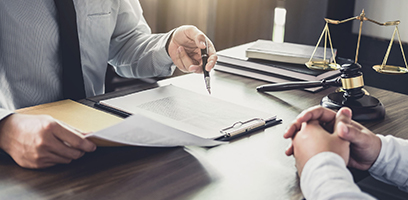
Pros Of Local Attorneys
Lawyers, also known as attorneys, are advocates for both people and organizations to the court and to opposing parties. They are important in criminal cases, civil cases, and in situations that involve legal rights and obligations for personal and business issues. Do I Need A Lawyer? Online resources have provided knowledge people need to solve many of their legal issues. However, without the related education and proper training, the average person may easily miss a vital deadline or file the wrong document in court, which can crucially impact your legal rights. Lawyers or legal advisors have years of education and training on various aspects of the legal system. With that knowledge, they can help navigate you through any complex law-related process to ensure your legal rights are always protected. In addition, consulting a pro attorney or a legal advisor to get the right information quickly and accurately in a legal process can help save time and reduce costs. What Can A Lawyer Or A Legal Advisor Do For Me? First, a legal adviser helps clients avoid litigation. They advise how to prevent personal legal problems, or help non-profit organizations to establish and adhere to the requirements of their tax-exempt status. Second, a lawyer helps you decide whether you need legal help or not. Sometimes, it's hard to judge whether an issue is a legal matter or something that can be resolved out of the court. At this point, you can turn to a lawyer for initial answers. Third, a lawyer will represent you to the court and opposing parties in any legal matter. They prepare essential documents for you, offer advice on proceeding your legal issue, and speak for you on the court, or negotiate with the opposing party on your behalf on mediation or arbitration. Should Location Be A Major Factor In Your Search For An Attorney? Yes! Location is a significant factor you should consider when looking for an attorney to represent you. Here are three main advantages of hiring a local attorney: 1. A local lawyer understands the regulations for your location better. Your issue will likely depend on local laws, so a local attorney will be an ideal choice; 2. A local lawyer is more convenient for you to meet. Although some attorneys are willing to travel to meet you, they will mostly charge for travel time. Therefore, finding a local lawyer in your geographical area is usually a good idea; 3. A local lawyer has practical local knowledge. An attorney in a specific city or town will likely have connections to local agencies, which will be helpful in the process of resolving your issue. How To Find A Local Lawyer? The most common and reliable way is to ask your family, friends, or colleagues for recommendations. Even if the recommended lawyer cannot handle your case, he or she can likely introduce you to another attorney who can. If recommendations do not lead you to a right lawyer, consult your state bar association or local nonprofit groups for lawyer referral services. They can help connect you to a qualified lawyer. Some people also find attorneys through the phonebook from advertisements. However, you should be careful to review a lawyer's education and experience when selecting one this way. Finally, you can run an attorney search on the Internet. Many online directories can help you find plenty of lawyers in different practice areas.
Read More > -
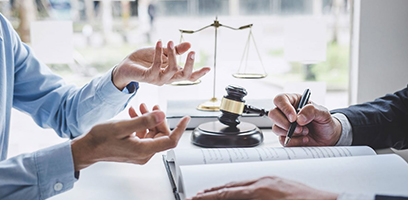
Pro Bono Service
When you are involved in a legal issue that requires to appear in court or up against another individual, finding a lawyer can quickly become overwhelming. However, legal assistance is usually costly. For clients who are unable to afford the legal services, pro bono will be an ideal choice. What Is Pro Bono? The term "pro bono," coined from Latin phrase "pro bono publico," means "for the benefit of the public." It is generally used to describe a lawyer offering free legal services. Pro bono can cover all cases provided without expectation of compensation. Seeking a pro bono attorney is one way to get the legal support you need without overspending or spending at all in some cases. Benefits And Defects Of Pro Bono To those who seek legal aid from pro bono, some of the benefits are: 1. Getting professional backing and assistance in cases where one battles with individuals or corporations who have financial resources 2. Getting justice and equality where one would be forced to settle due to the lack of legal representation 3. Saving legal fees However, pro bono service is not flawless. Some of its defects include: 1. Pro bono assistance does not always mean full court representation or appearances (Pro bono attorneys may simply do legal research, draft pleadings, or just commit to part of the proceedings in your legal battle) 2. Only 20% of low and moderate income individuals can get pro bono help with their legal problems (because it is challenging for legal professionals to find enough hours to handle a case) 3. Many law firms are in shortage of staff or funding for pro bono work Who Are Qualified For Pro Bono? Despite its defects, pro bono is still an affordable and effective way for poor people to solve legal problems. However, not all are qualified to seek legal aid from pro bono. To qualify for pro bono program, you have to show proof that your income is under a certain level. For a four-member family, the underprivileged clients can get access to a pro bono lawyer on the condition that their income is below the federal poverty level of $24,000. Also, marginalized and minority communities and disadvantaged citizens, including the elderly, children, and unemployed people can also apply for pro bono assistance. It is part of community services. Plus, certain types of community cases such as suits against the government, civil rights issues, and police misconduct issues can turn to pro bono departments, too. How To Seek Pro Bono Aid? If you need pro bono aid, these ways may help you. First, turn to local or state bar associations. Many bar associations have pro bono programs to offer affordable or no-cost legal help. The lawyers are willing to help the underprivileged clients at no charge. Second, many private law firms also have pro bono departments for cases such as welfare benefits, obligation, discrimination, and more. Third, find help at law school legal clinics. Law students help handle your case under the supervision of a clinical professor in areas including family law, elder law, healthcare law, and landlord-tenant problems. Finally, search on pro bono lawyers websites. The Internet can help match people lacking legal fees with the attorneys offering free legal services.
Read More > -

Divorce Attorneys
It's already painful to end a marriage, but it's even more painful to deal with the problems that come with it, such as child custody, alimony, and asset division. Handling the whole divorce process can take more time and energy than you think. To make things easier, you may need a divorce lawyer. What A Divorce Lawyer Can Do For You 1. Advise you on strategy An experienced divorce attorney will be able to design a strategy for your case and tell you what you are likely to get in the divorce. 2. Negotiate on your behalf The divorce attorney always has your best interests at heart and is willing to handle all the tough negotiations for you. 3. Handle paperwork Although you can complete divorce paperwork on your own, it’s easy to make mistakes if you are not familiar with the legal system. Besides, the divorce paperwork process is extremely time-consuming. Aside from spending several late nights completing forms correctly, you may have to take time off work to go to the courthouse to collect the proper paperwork and later file it. But if you have a divorce attorney help you, things would be totally different. 4. File motions to resolve other matters You may encounter many problems in the divorce process, for example, “who lives in the marital home during the divorce.” Your divorce attorney can file motions to resolve these questions. Of course, a divorce attorney can provide more services than we mentioned above. But before you can discuss the details with them, you need to find a divorce attorney first. How To Find A Divorce Attorney Here are 5 effective ways to help you find a potential divorce attorney: 1. Ask Around For Recommendations Talk to your friends and family members who have gone through a divorce, and see if they can recommend a professional divorce attorney. 2. Search Online Today most attorneys have at least a website or social media profile. You can use a search engine like Google to locate specialized divorce lawyers. There will also be reviews about them to help you choose the right attorney. 3. Consult Your Local Bar Association Your local bar association has a list of the top attorneys, including divorce attorneys in your area. Contact them and get a list of names. 4. Visit Your Local Law Firms Research your local law agencies and pay them a visit. You may get some luck and find a list of divorce attorneys. 5. Use The Yellow Pages You can also search the listings for divorce attorneys on the Yellow Pages. As you can see, there are many options available for you to choose a divorce attorney. And you may have got a list of potential attorneys through the sources mentioned above. What to do next is go for a consultation with each of them to select the right one for you. Interview The Divorce Lawyers Treat the consultation like a job interview, wherein you are the employer. Prepare questions for the attorney, and make sure you won’t miss the following: “How long have you been practicing family law?” The longer the attorney has practiced, the better. “How many divorce cases do you handle per year?” The attorney who spends at least 50% of his or her time doing divorce work is ideal. “What are your fees? How do you charge? What kind of service is included?” “How are the fees calculated?” Make sure the attorney’s service is worth the cost, and most importantly, you can afford the cost. “What is your strategy for my divorce?” The attorney should be able to give you a rough game plan for your case. “How long do you expect my divorce process to take?” Although the attorney is not a fortune teller, he or she should be able to tell you an estimate of how long the process will last. You can also ask any questions related to your specific situation. Usually, the attorney should not have any problem answering any questions you asked and should not sound hesitant. But if your issue is complicated or rare, it’s possible that he or she may need to do a little research. Now that you have done all the interviews, you’re able to find out who is the best lawyer for your divorce.
Read More > -

What Are Pro Bono Attorneys?
What Is A Pro Bono Attorney? The pro bono attorney refers to the attorney who handles all or a portion of your legal case at no cost for you and charges no fee from any other source either. If you have a basic knowledge of legal services and have heard about legal aid, which is a kind of legal help charging no fee from the clients, you may wonder the difference between pro bono attorneys and those lawyers who work for the traditional legal aid organization. Well, it's quite easy to tell the difference from the aspect of salary. Lawyers providing legal aid services are paid by the funders of legal aid organizations, while pro bono attorneys get NO pay at all. Why Do People Need Pro Bono Attorneys? The existence of pro bono attorneys gives those marginalized members of the community chances to access justice without going bankrupt. Even though people are entitled to represent themselves in a court of law in the US, most of them prefer turning to someone else professional, unless they practice law themselves. However, some disadvantaged citizens, such as low-income earners, cannot afford the high rates of pay commanded by highly skilled and educated lawyers. What Do Pro Bono Attorneys Expect From You? To offer help as best as they can, pro bono attorneys need their clients' cooperation. Here's a list of what they may expect from you. Attention, if you fail to meet these expectations, you might not get assistance from pro bono lawyers. 1. Conduct yourself appropriately when interacting with attorneys. Inappropriate conduct may lead to a bad impression and a long shot of further cooperation. Improper behavior includes profanity, speaking in a raised voice, intoxication, threats, harassment, and any actual or threatened physical or verbal abuse. 2. Get well-prepared before meeting with lawyers. It's necessary and essential to respect the time of your pro bono attorneys, for they are donating their time to help you at no cost. You'd better write down all your questions about the case and discuss them during a scheduled meeting with your attorney, rather than calling the lawyer EVERY time you think of a problem. 3. Keep following up on your case and do what you promise to do. If you're asked to provide documents or information, your pro bono attorney will expect you to follow through. But if you're unable to do so or keep a scheduled appointment, let the lawyer know as soon as possible. 4. Notify the lawyer immediately if one of the following occurs: You get legal help somewhere else. Your contact information changes. You've got a job change, including getting a new job, jumping ship, or getting fired. Your living arrangements or other circumstances change, including pregnancy, which may affect your household income or legal issue. 5. Maintain good communication with your pro bono attorney. Tell lawyers your needs as quickly as possible, because they might not be able to satisfy your last minute requests. So for your own good, leave enough time for your attorney to process your case.
Read More > -

Where To Find A Pro Bono Attorney?
What Is A Pro Bono Attorney? The term pro bono, shortened from the Latin "pro bono Publico," means "for the benefit of the public." A pro bono attorney handles all or part of your case without charging you or any other source. Free pro bono assistance is available to those who can't afford a lawyer. Benefits Of Retaining A Pro Bono Attorney For those who seek a pro bono attorney, the benefits include, but are not limited to the following: Getting professional assistance in legal cases, especially in cases where the other party has financial resources Saving a huge amount of legal fees Getting justice and fairness where one would be forced to settle due to the lack of legal representation Where Can You Find A Pro Bono Attorney? You can retain a pro bono attorney through any of the following organizations: 1. National And State Bar Associations To find a pro bono lawyer in your area, check the American Bar Association's pro bono directory map and click on your state. You'll find a list of local pro bono services, including case types and counties served. You can also visit your state's bar association directly, which also maintains a list of pro bono lawyers. 2. Nonprofit Organizations Nonprofit Organizations help low-income people who can't afford a lawyer contact local legal aid programs and lawyers who volunteer to provide free legal services. If you don't qualify for free legal aid, the organization can also help you find private lawyers who are willing to help you at a significant discount. 3. Local Law Schools Many law schools require their students to engage in pro bono services as a condition of graduation. The students deal with legal cases under the supervision of law professors or practicing attorneys. Call your local law schools to see if they have a pro bono program that can help resolve your particular legal issue. 4. Law Firms Many law firms offer pro bono services as part of their corporate social responsibility programs. They usually display their practice areas on their websites and leave phone numbers for you to call for more information. How To Cooperate With Your Pro Bono Attorney Pro bono attorneys are there to help you, but to serve you as best as they can, they need your cooperation. You should pay attention to the following factors when working with them: 1. Make Sure That You Are Well-Prepared Be well-prepared before meeting your volunteer lawyer. You should respect the time of your pro bono attorney, as the attorney could have spent it handling other paid cases. You are expected to write down all your questions about your case and schedule an appointment to discuss them, rather than call your lawyer each time you think of a question. 2. Make Sure That You Are Well-Behaved Conduct yourself appropriately when interacting with your pro bono lawyer. Inappropriate behaviors, such as profanity, threats, harassment, and any threatened or actual physical or verbal abuse, may terminate your cooperation. 3. Make Sure That You Keep Your Words For example, keep scheduled appointments. If you are not able to make it, inform the people involved as soon as possible. 4. Make Sure That The Communication Is Effective Communicate your needs to your pro bono volunteer as quickly as possible. He or she may not be able to satisfy last-minute requests. 5. Make Sure That You’ll Notify Your Pro Bono Attorney Immediately If: You have found legal help elsewhere You have changed your contact information Your living arrangements or other circumstances have changed in any way, including your losing your job or getting pregnant, which may affect your household income or legal issue.
Read More > -
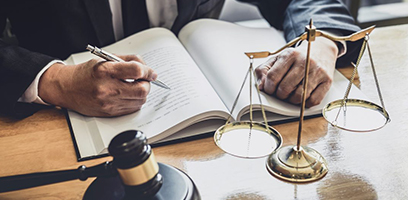
9 FAQ About Legal Issues
What Is A Pro Bono Program? Pro bono programs help underprivileged people who cannot afford legal services seek volunteer lawyers to handle their cases for free or at a significantly reduced cost. State or local bar associations usually provide these programs. Attorneys in many fields offer pro bono services too. Who Is Entitled To A Free Lawyer? Individuals who are charged with a crime that might result in imprisonment and people who cannot pay an attorney can constitutionally get a free lawyer. Besides, those who are decided "indigent" by a court - having few assets and no funds to pay a lawyer - can get an appointed free lawyer. Who Else Qualifies For A Free Lawyer? One generally has no right to a free lawyer in non-criminal or "civil" cases. Fortunately, many community-based programs such as pro bono provide free legal services for people whose income is under 125% of the federal poverty level in civil cases. Besides, the elderly and disabled, domestic violence victims, and people enlisted in the military may be eligible for free legal help even with a little higher income. What Do I Do If I Can't Get Free Legal Help? If you are not eligible to get free legal services from a pro bono or legal aid program, you can turn to alternatives such as consulting a lawyer referral service for low-fee attorneys or seeking "unbundled" legal services to hire a lawyer for part of your legal work. You can also get legal information to solve the legal problem yourself. What Is The Legal Services Corporation? The Legal Services Corporation (LSC) is the single largest funder of civil legal aid in the US. It was founded to ensure that low-income Americans have equal access to justice by funding high-quality civil legal aid. What Is The Difference Between The Legal Services/Legal Aid Program And The Public Defender Program? A Legal service/legal aid program only handles civil cases, not criminal. The Public Defender Program offers free representation to people who cannot pay an attorney for criminal cases. When Should I Seek Legal Advice? Generally speaking, you should seek legal advice when you cannot settle a dispute, and your money or property is at risk of loss. Some common situations when you should get legal advice include: 1. You are threatened or sued with a lawsuit 2. You have a disagreement on legal documents 3. You need a divorce and want the custody of your children 4. You are abused by a family member 5. You think you are treated unfairly by a government agency What Kinds Of Cases Do The Legal Services Programs Handle? Each legal services program has its own priorities that determine which kinds of cases they can handle. Civil cases that most legal services programs can handle include family law, housing, consumer, public benefits, special education, unemployment compensation, tax problems, and others. What If A Legal Services Program Will Not Help Me? Due to limited resources and funding, legal services programs cannot handle every case for every person. If your case cannot be handled by legal services programs, you can turn to the Self Help Center for available resource materials. You can also contact the Legal HelpLink for a private lawyer.
Read More >
